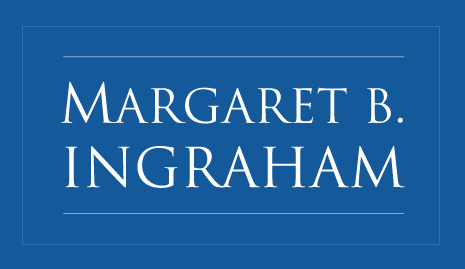The personal story with which I concluded my June 7 post was intended in part to demonstrate the mind-heart concept embodied in the Hebrew word lev, as well as to illustrate the power of heart’s memory, in the context of a modern real world experience. I say in part because stories about the psalms, like the psalms themselves, cannot be reduced to a single message or point. So let’s look together at one other, namely practice.
Practice lies at the heart of the psalms’ power for David and for us. As is often the case in reference to spiritual things, a single word – in this case practice – is endowed with several nuances of meaning, and all of them deserve attention.
First, the psalms are about David’s practice. They are the method by which, time and again, he brought his praises and petitions and the outcries of his heart before his Lord. As gripping as they are in their immediacy and in the rawness of their powerful images, the psalms are without question carefully practiced expression. One need only examine their literary structure to find the evidence of that. While we most often speak of the psalms as praises –as the title Sefer Tehillim directs us to do– and as prayers, in form they are poems. The mastery of that formal mode of expression, namely Hebrew poetry, was a skill in which David was particularly well-practiced. I guess what I am saying is that he worked to hone and share his God-given talent.
In his psalms David employed the literary conventions common to the traditional Hebrew poetry of his time. All of those poems that we can identify as David’s, either by his name in the ascription/superscription or by his distinctive voice, are fastidiously structured. Conveying meaning within that structure took practice. Achieving the beauty of language, the richness of image and even the sense of spontaneity that the great psalmist did surely required much dedication and design and concentration. The supreme example, where detailed patterning is most evident, is the magnificent 119th psalm. It is one of the several Davidic psalms that are acrostics in which the first word in each stanza begins with successive letter of the Hebrew alphabet. That patterning cannot be seen in the English, of course, but it is significant to the meaning of the poem. (I have attempted to “show” intricate design and speak to its significance in my book This Holy Alphabet). Psalm 119 is widely acknowledged as the crown jewel of the psalter. Charles Spurgeon called Psalm 119 “the little Bible” and C.S. Lewis, himself a poet, referred elegantly to its structure and texture as “embroidery.” I agree with both descriptions, which recognize that David was at once a practiced poet and inspired and knowledgeable worship leader. Because he was, his poems masterfully give us a form — and an extraordinarily accessible and natural feeling one at that — by and through which to pour out before God the deepest needs and longings of our own hearts and to offer Him eloquent praise.
Since David’s time the psalms have been enshrined in the corporate practice that is formal worship, and we know that Jesus was taught the psalms in the temple. Psalms still hold an important place in the Jewish prayer book and services today; and liturgical Christian churches, as well as many others, have adopted and incorporated psalms into their orders of worship. Praying, saying and singing the psalms is central to our shared faith and to the discipline with which we exercise it regularly as a body of believers.
Notice that I have introduced the word discipline into this discussion, and it absolutely belongs here. In yet another sense the word, practice means, or at least requires, discipline. Discipline connotes that process by which we consistently and repetitively work at something to achieve a particular end. In the framework of worship and prayer, that end is to open the way to meaningful communication with the Great I AM, to move who we are into closer communion with Him Who Is and Who He Is.
Studying, reading, praying and meditating on the psalms repeatedly as part of our own regular private practice and discipline opens the pathway to that  holy intimacy. Here is another marvelous mystery: at the same time that it carries each of us individually, uniquely, and personally into dialogue with Him, it also unites us with a great multitude others, many of whom we do not and cannot know.
holy intimacy. Here is another marvelous mystery: at the same time that it carries each of us individually, uniquely, and personally into dialogue with Him, it also unites us with a great multitude others, many of whom we do not and cannot know.
Explaining precisely what I mean, just as attempting to explicate any mystery, is difficult. I can only liken the daily activity of turning heart and attention to the psalms to the millennia-old practice, among some practitioners of Judaism and Christianity, of fixed hour prayer. The prolific Christian writer Phyllis Tickle – who herself has been “praying the hours” daily for over fifty years – has introduced this discipline to a broad contemporary audience through her acclaimed series of The Divine Hours books. She describes part of the personal benefit and blessing of this ancient practice as knowing that as she sits down to pray, she is picking up the prayer that individuals in the time zone before her just concluded; and when she ends, someone in the next time zone will take up what she has just finished. All become part of the same chorus, creating and participating in the “24 hour cascade of prayer before the throne of God, all of us saying the same thing and all of us saying the same words that have been from the beginning.”
 For each and every one of us who encounters the psalms today, they have been for us “the same words from the beginning.” Beyond that, we can describe the psalms as the whole treasure house of man’s experience of God, a space made with words and poems hallowed by all the voices that recite them. What more sacred, and simultaneously glorious and humbling, experience than to be one hallowing voice in the immense and eternal cascade flowing before the throne of grace? What more pleasing way, to ourselves but foremost to the God, to adore Him than to use the very words enshrined in Holy Writ and first offered in prayer by the man after His heart?
For each and every one of us who encounters the psalms today, they have been for us “the same words from the beginning.” Beyond that, we can describe the psalms as the whole treasure house of man’s experience of God, a space made with words and poems hallowed by all the voices that recite them. What more sacred, and simultaneously glorious and humbling, experience than to be one hallowing voice in the immense and eternal cascade flowing before the throne of grace? What more pleasing way, to ourselves but foremost to the God, to adore Him than to use the very words enshrined in Holy Writ and first offered in prayer by the man after His heart?
Does practice make perfect? Daily meditation on the psalms will not make us perfect people, but it will surely take us into that place where we can learn to perfect our corporate and private prayer, where the peoples’ praises become a thunderous cascade. I believe it is this for which our hearts and voices were made.
